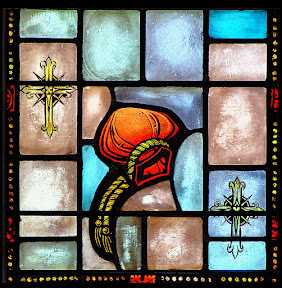 |
The Lord is my shepherd; I shall not want. He maketh me to lie down in green pastures: he leadeth me beside the still waters. He restoreth my soul: he leadeth me in the paths of righteousness for his name’s sake. Yea, though I walk through the valley of the shadow of death, I will fear no evil: for thou art with me; thy rod and thy staff they comfort me. Thou preparest a table before me in the presence of mine enemies: thou anointest my head with oil; my cup runneth over. Surely goodness and mercy shall follow me all the days of my life: and I will dwell in the house of the Lord for ever.
Psalm 23:1-6 (KJV)
Once upon a time, but not so very long ago, the most memorized chapter in the Bible was Psalm 23. It is probably still the most memorized chapter in the Bible, but far fewer Americans know this Psalm than knew it in the recent past. King David’s most famous Shepherd Psalm is still a source of great comfort for faithful Christians in every part of the world, but I don’t think that the “Church Growth” types have much use for it.
The pastor of the largest congregation in the United States, Joel Osteen, seems to have little use for the Bible on the best of days, except as a prop, but Osteen is too caught up in getting his people to follow him like sheep to teach them to follow Christ. Besides, walking “through the valley of the shadow of death” is not Osteen’s idea of “Your best Life Now.” If Osteen started to preach about truly taking up your cross and following Jesus then this message would likely turn away many people who would otherwise come to see the spectacle of his church and he would not be able to enjoy the fabulous lifestyle to which he has become accustomed. Jesus preached this and many people did walk away, but instead of changing the message, Jesus kept preaching to the faithful so that they may be saved.
Likewise, the author of the “Purpose Driven Church,” Rick Warren, is not likely to emphasize Psalm 23 too much because although “becoming more sheep-like” is a valid Christian purpose, I’m sure Warren would not have sold multiple millions of his books if he had tried to teach people to be more like sheep or little children (as Jesus taught). Instead, Warren teaches people to be very much wolf-like, which is the antithesis of the 23rd Psalm and also the rest of Scripture.
 |
It is humbling to view one’s self as a sheep who is totally dependent on a shepherd, even one as gracious as Jesus Christ. Even though it is true for all people on earth, no one likes to admit that they need Jesus the way sheep need a shepherd. This is one reason why the majority of people (worldwide) do not believe in Jesus as their shepherd unto salvation.
I must confess that although from the day I was born I have inherited the surname of Wolf(f), ever since I was baptized into the Christian faith as a baby I have been a little lamb who follows Jesus as my Good Shepherd. However, as a descendant of Adam and Eve (like everyone else) my natural inclination is to rebel against the shepherd and go live among the wolves, yet the Good Shepherd’s “rod and staff” have graciously kept me as a sheep within the flock.
Many people reject Jesus because they are unwilling to humble themselves and submit to Christ as their Shepherd. Christians know that it is much less humiliating to humble yourself now than to wait for Jesus to return in power and glory and humble you as He judges you, saying, “I never knew you.” (Matt. 7:23) Jesus may ask for our trust, but He doesn’t ask for us to suffer and die for our sins as they deserve. Instead, that is what He did for us. Jesus is the Good Shepherd, not because He is so nice He would never send anyone to hell, but because He suffered hell for us as our substitute so that all who believe in Him are forgiven and will never have to endure the hell that He suffered on the cross.
It is only because of what Jesus did for us on the cross that we can look forward to judgment day in faith as David did when he wrote, “Surely goodness and mercy shall follow me all the days of my life: and I will dwell in the house of the Lord for ever.”





























